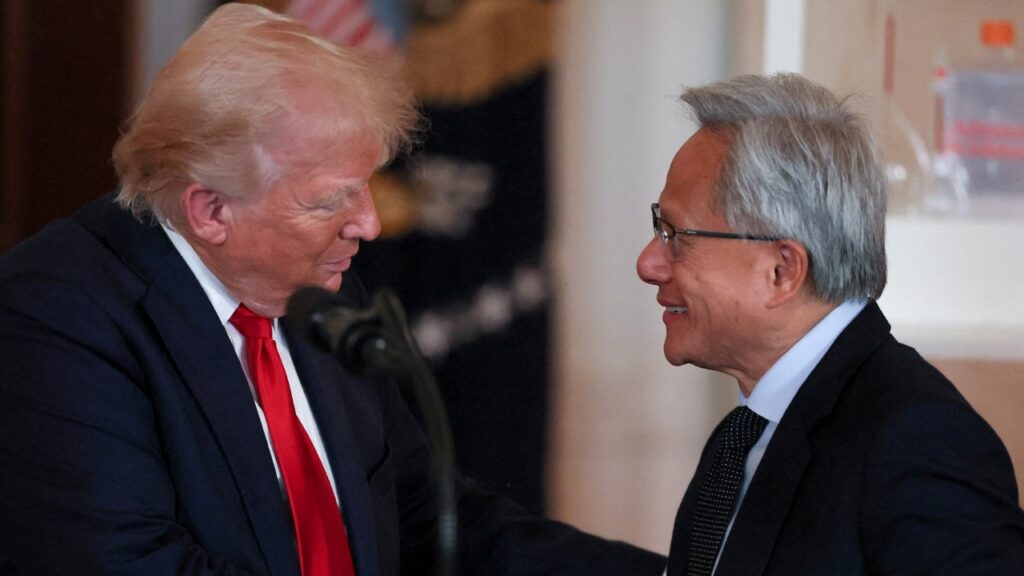plowunited.net – Democratic senators have raised serious legal concerns over President Trump’s proposal to take a 15% cut from Nvidia and AMD’s AI chip exports to China. In a letter sent Friday, six senators urged Trump to reverse his decision allowing these AI GPUs to be exported. They argued that the plan could violate U.S. export laws and constitutional provisions.
Read More : Xiaomi Launches Poco M7 4G with 7,000mAh Battery
The letter highlights that Nvidia and AMD’s AI GPUs require an export license under U.S. law. Charging a fee on this process, as Trump intends, may breach a statute that forbids the government from imposing charges for export license processing. Specifically, the senators referenced a law prohibiting fees related to export authorization.
Additionally, the senators warned the plan might be unconstitutional, citing Section 9 of the U.S. Constitution. This section prohibits taxes or duties on articles exported from any state. The senators did not detail the constitutional argument but emphasized the legal risks involved in collecting fees on AI chip exports.
Beyond legalities, the senators expressed deep national security concerns. They argued that selling AI chips to China, a geopolitical rival, could undermine America’s competitive edge. They described the arrangement as “negotiating away” U.S. advantages in critical technology in exchange for what amounts to a commission on exports.
The lawmakers called on the White House to disclose details about how it will collect payments from Nvidia and AMD. They also sought clarity on who negotiated the deal and how the funds would be used. This request reflects growing scrutiny over the administration’s handling of high-tech export policies during a period of intensified U.S.-China rivalry.
White House and Companies Respond Amid Ongoing Debate
President Trump confirmed on Monday that the U.S. negotiated a “little deal” with Nvidia to allow exports of its H20 GPU to China. Trump described the H20 as “obsolete,” but Democrats and industry observers disagree about its significance. The White House has acknowledged ongoing legal reviews to finalize the terms of this export arrangement.
White House Press Secretary Karoline Leavitt stated that the export deal currently applies only to Nvidia and AMD but might expand to other companies. She explained that the Department of Commerce is still working through the legal and procedural details. This ongoing process reflects the complex balance between national security concerns and economic interests.
Nvidia responded by defending the export deal, stating that the H20 GPU would not enhance military capabilities. The company argued that banning the H20 hurt American taxpayers by limiting U.S. leadership in the AI sector. Nvidia emphasized that the administration will carefully consider all license applications based on benefits and risks.
Read More : Invisible Text Tricks Expose Data Theft Risks in AI Tools
AMD has not yet commented publicly on the issue. Meanwhile, the tech industry remains cautious as it watches how the U.S. government navigates AI chip export restrictions. The senators’ letter and the unfolding debate highlight the tensions between protecting national security and maintaining technological competitiveness in a fast-evolving global market.
Looking ahead, this controversy could shape future export policies and U.S.-China tech relations. The administration faces pressure to balance security with economic growth, especially in the critical semiconductor and AI industries. As legal questions and political concerns persist, stakeholders await clearer guidelines on the future of AI chip exports.


